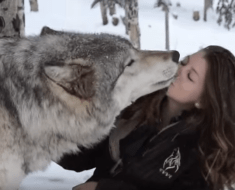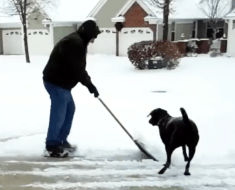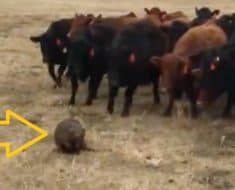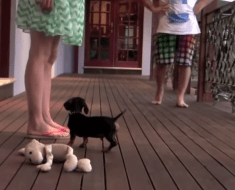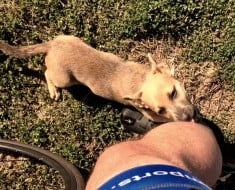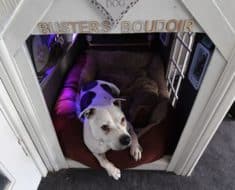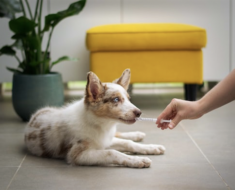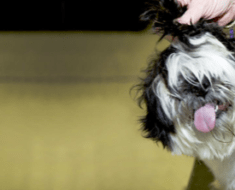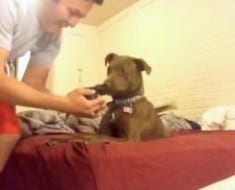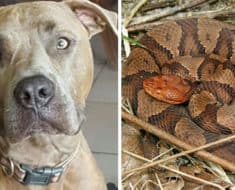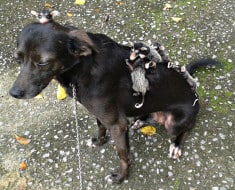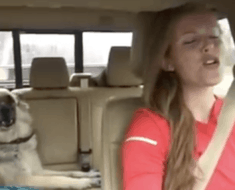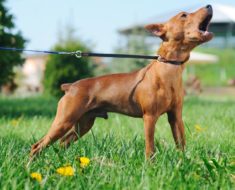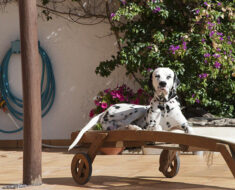
Pixabay
Dogs, like people, can get nervous. The professional term for dog nervousness is anxiety. Anxiety in dogs is different than in humans. Dogs experience anxiety when their fight/flight/freeze reaction occurs in anticipation of something that isn’t an actual threat. The fight/flight/freeze reaction is a survival tool that dogs use when threatened. For example, when another dog is menacing them, a dog will either fight, run away or freeze in the hopes that the other dog won’t see him as a threat. When this response occurs to something non-threatening like thunder, your dog doesn’t know what to do and becomes anxious. Their body is telling them they need to fight, run away or freeze but they have no actual threat to confront.
Dogs can develop anxiety for a variety of reasons. It could stem from issues with their socialization as puppies, a traumatic experience, genetics or an age-related illness such as dementia. However, the most common type of stress is separation anxiety. Separation anxiety usually results in dogs who have been rehomed, have a history of abandonment, or who have spent time in shelters. Separation anxiety is most often triggered when your dog is left alone for any period of time. It can also be triggered by a change in routine and people leaving or joining the household.
There are several ways to treat anxiety in dogs:
● Calming chews for anxiety
● Exercise
● Distraction
● Massage
● Dog Appeasing Pheromone (DAP)
● Medication
Calming chews for anxiety are a non-medicinal remedy that helps soothe the symptoms of anxiety. Calming chews use herbs and vitamins such as tryptophan and melatonin to provide your dog with a sense of calm. The amino acid L-Theanine is also sometimes used in order to increase your dog’s serotonin and dopamine levels. Many calming chews also contain probiotics to support a positive mental state and promote digestive health. They are particularly useful for dogs who get diarrhea when stressed.
Exercise is another non-medicinal remedy for anxiety. Exercise works to ease the symptoms of anxiety in dogs by stimulating the production of serotonin. Serotonin is the chemical in the brain that produces positive feelings. Exercise also burns off pent-up tension and energy that can heighten anxiety.
When in an anxiety-causing situation, a good way to immediately calm your dog is to distract them. By engaging their brain in something other than the stressor you can depress the fight/flight/freeze response. For instance, you can go through the tricks your dog knows. Reward him for performing each trick and soon he’ll forget all about his stressor. This also helps your dog to associate his stressors with rewards so that they become less frightening and more tolerable.
Like humans, dogs love a good massage. A long, slow, stroking massaging can soothe your dog’s nerves. In fact, Linda Tellington-Jones has developed a dog massage called T-Touch that has been shown to be particularly effective. The Touch prescribes a circular finger and hand movements all over the body. This is meant to activate cellular intelligence which ultimately calms your dog.
Dog Appeasing Pheromone (DAP) is a scent that’s based on the hormone that is produced by lactating female dogs. When secreted by a mother dog, her bond with her puppies is increased and their mood is calmed. DAP comes as a plug-in diffuser and the smell is undetectable to humans. It has been proven effective for puppies but there remain questions about its efficacy with adult dogs. It is, however, a good option to try among other methods for reducing your dog’s anxiety.
As with humans, antidepressants and SSRIs can be prescribed to dogs to reduce their anxiety. Antidepressants and SSRIs are best for dogs who are extremely reactive. When a dog is extremely reactive it becomes hard to use any of the methods listed above. This is because the dog becomes so physiologically aroused that their fight and flight response goes into overdrive and they react quickly. This can result in extreme avoidance, aggression or panic. Combining medication with the above suggestions will provide better results.
If you notice that your dog is anxious or easily stressed, you should always consult a veterinarian first. The vet will be able to go over your options and guide you in how best to proceed.








